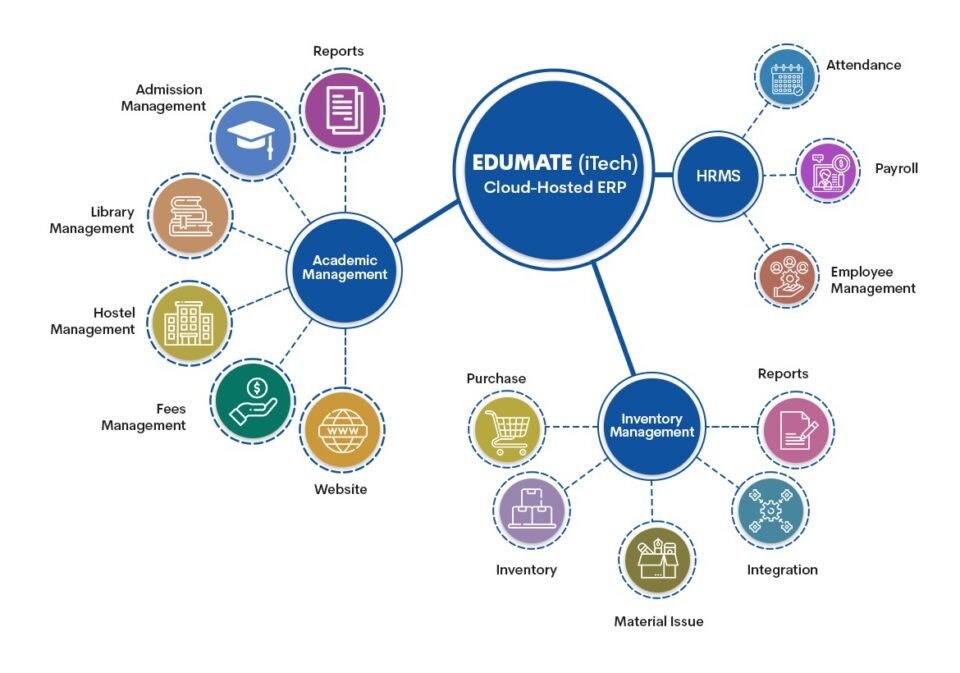Enterprise Resource Planning (ERP) systems have transformed the operational landscape of universities by streamlining administrative tasks, enhancing decision-making, and improving overall efficiency. With increasing complexities in managing higher education institutions, ERP has become indispensable.
Importance of ERP in University Operations
1. Centralized Information Management: ERP provides a centralized database, allowing real-time access and management of student data, academic records, faculty information, and financial data. This centralized system reduces redundancy and ensures accuracy and consistency across various departments.
2. Improved Decision-Making: With integrated analytics and reporting features, ERP helps university administrators make data-driven decisions swiftly. Access to comprehensive reports on admissions, finances, resource allocation, and academic performance allows leaders to proactively manage and strategize.
3. Enhanced Communication and Collaboration: An ERP system facilitates seamless communication among departments such as administration, academics, finance, and HR. By removing silos, ERP fosters collaborative workflows, enhancing operational synergy and reducing delays.
4. Efficient Resource Management: ERP optimizes the allocation and utilization of resources like classrooms, laboratories, and human resources. It helps in better scheduling, ensuring efficient use of campus facilities and personnel.
5. Transparency and Accountability: ERP systems offer transparency through tracking, monitoring, and reporting mechanisms. Financial accountability and transparency in procurement, payroll, and budgeting significantly reduce administrative corruption and misuse of resources.
Support Required for Successful ERP Implementation
Implementing an ERP system in a university setting requires strategic planning and support:
1. Leadership Commitment: Strong, consistent support from university leadership is crucial for successful ERP adoption. Leadership must clearly communicate the vision, value, and objectives behind ERP implementation.
2. Stakeholder Involvement: Engaging faculty, administrative staff, and students early on creates buy-in and facilitates smoother adoption. Stakeholders’ inputs ensure the ERP solution aligns with actual operational needs and institutional culture.
3. Adequate Training: Continuous and comprehensive training programs for staff and faculty are essential. Users should be proficient in utilizing ERP modules effectively to realize its full benefits.
4. Technical Infrastructure: Universities must ensure robust technical infrastructure, including reliable hardware, network stability, and adequate data storage capacities, to support the ERP system.
5. Dedicated Implementation Team: A specialized team comprising IT experts, process owners, and ERP specialists is vital to oversee the implementation process, manage challenges, and facilitate effective change management.
6. Post-Implementation Support: Continuous technical support, regular updates, and feedback mechanisms must be established to address issues swiftly, ensuring sustainability and adaptability of the ERP system.
In conclusion, ERP implementation, though complex, is a transformative step for universities, significantly enhancing their operational efficiency, transparency, and overall management effectiveness. With appropriate support and commitment, ERP can deliver profound long-term benefits, positioning institutions to better meet the demands of modern higher education.

